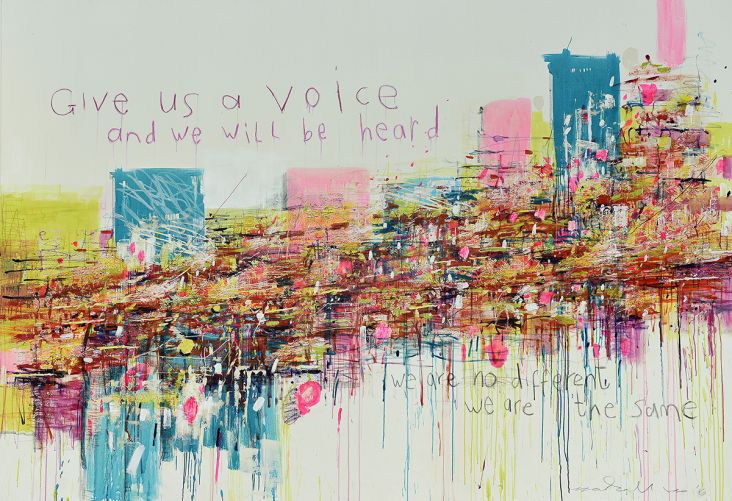How to secure your first job after school or university
When you leave school or graduate from university, you'll undoubtedly want to find the right job as quickly as possible. But securing that initial step on the career ladder isn't as easy as you'd hoped.

Image licensed via Adobe Stock
The jobs market is especially tough, particularly with so many people competing for the same limited positions in the ever-popular creative industries.
So how do you ensure you put your skills and qualifications to good use and get the job of your dreams? Here are some helpful top tips, covering everything from successful CVs and how to succeed at interviews to making the most of your work experience:
Get your CV right
Your CV is your ticket to success, so it must present the right first impression. Great CVs outline your skills, experience and qualifications while showing a little of your personality. Consider the following points to improve your own:
1. Stick to the expected template
Every CV should be as unique as you are. But the format and layout will have more success if it adheres to certain expectations, such as a personal statement; contact information; education and qualifications; work history/experience; relevant skills and at least two referees.
To ensure you don't miss anything, check out this free CV template courtesy of Monster. It contains everything you need to craft the perfect CV.
2. Presentation is everything
Your CV must be presented with an appealing layout – especially if you're applying for a job in graphic design.
If you're sending your CV digitally, then make sure it's a PDF document attached to your cover email and that the file size isn't too large. Your file name should also be regarding the job description, rather than a generic 'Joe Bloggs CV' approach.
If you're going all traditional and sending by post, print your CV on clean, crisp white paper and avoid folding or creasing the document by using an A4 envelope.
3. Use no more than two pages of A4
Keep things concise and avoid waffle. You shouldn't need more than two sides of A4 to convey your qualifications and experience. If you do, then you're probably further ahead in your career and have no choice but to include more details. But if you're starting, then two pages will suffice.
4. Don't leave any gaps
Every CV should be tailored specifically for each position you apply for. In which case, avoid giving any reason for your CV to find its way to the trash can.
If in doubt, the clues lie in the job description. Highlight all of the requirements and ensure your CV adheres to these. For example, if the company in question is searching for someone with excellent communication skills, make sure your CV demonstrates you're capable. Do they want someone with a full clean driving licence? Add it to your additional skills.
5. Be ruthless to improve
Consider your CV, and you'll soon spot where you need to make improvements. Don't have enough work experience? Get some organised so you can show how determined you are to learn in a working environment.
Got any gaps in your education timeline? Fill them with anything you were doing that will showcase your skills, even if you were travelling the world or working behind a bar. Remember, you can pretty much turn anything into something positive on your CV. If in doubt, ask a parent or friend for a second opinion.
Gain some work experience
Employers love qualifications, but they're not as impressed if you haven't any relevant experience to accompany them. If that's the case with you, start to call some local firms to see if they can take you on for a week or two.
Be prepared to be knocked back many times. But don't give up because there will be someone who can help. Don't, whatever you do, pass up any opportunities that come your way. For example, if a friend or a family member has a work experience placement for you – make sure you do it! It's tough to find people who will be prepared to invest the time.
Once you're on placement, don't waste the experience! Consider these pointers:
Set some personal goals: Don't just rock up and sit around twiddling your thumbs. Think about what you want to get out of the placement. What would you like to learn so you can add it to your CV? Speak up and ask your temporary employer if they can help.
This is not a rehearsal: Treat your placement like a proper job. Turn up on time, dress appropriately, show a willingness to learn. Offer to help, ask questions and bend over backwards to become part of the team. The key is to leave a lasting impression, so they don't forget you.
Be humble: You might think you know it all. The fact is, you've still got plenty to learn. Leave the attitude at home, and take a humble approach to the experience.
Take on more responsibility: Don't coast through your placement; move out of your comfort zone and volunteer to take on new challenges. Your employer will be impressed with your go-getting attitude, and you'll have more to add to your CV in future.
Make the extra effort
You might have an excellent CV and a whole host of work experience under your belt, but if you're going for a creative role, what's stopping you from showcasing your skills?
It could mean creating a side project – for example, if you're a designer, why not launch an exhibition? Or if you're going for a job in copywriting or media, could you start your blog?
Potential employers are always super impressed with those who go the extra mile to stand out from the crowd.
Smarten up your act
With so many potential job interviews lined up, now's the time to tackle that rough haircut and remove those unusual piercings. Prepare yourself for meeting potential new employers by smartening up your act. Because first impressions do count.
Not sure what to wear? I'd always advise investing in a suit as you'll look smart and presentable. Also, keep your nails clean (and stop biting them), brush your teeth and generally keep yourself nicely groomed.
Win at job interviews
Once you do secure a job interview, pat yourself on the back! You're halfway to achieving a job. Before the big day, prepare and research like it's going out of fashion. Make sure you have some questions ready to ask during the interview – because you're also interviewing them. To practice, you could get a family member or friend to test you on some common interview questions beforehand.
Now all you have to do is turn up 15 minutes early to any interview you attend; dress smart and ensure you're well-groomed; smile and look people in the eye, and don't forget that firm handshake (because weak handshakes are so off-putting).
If you're feeling nervous, tell yourself that it's not the end of the world if you don't get the job. Take lots of deep breaths to calm yourself down. It's quite natural to be anxious during interviews, and your interviewer will know that. So try to relax and do your very best.
Once the interview is over, thank the interviewer(s) with a card or email, saying that you appreciate their time and look forward to hearing back from them.
Don't give up
Despite your best efforts, you will likely face rejection. Don't be disheartened. Every job interview you attend is never a waste of your time; it's always a valuable learning experience.
You'll find that you become more and more comfortable with the entire process, eventually securing the creative job of your dreams. Good luck!




 by Tüpokompanii](https://www.creativeboom.com/upload/articles/58/58684538770fb5b428dc1882f7a732f153500153_732.jpg)


 using <a href="https://www.ohnotype.co/fonts/obviously" target="_blank">Obviously</a> by Oh No Type Co., Art Director, Brand & Creative—Spotify](https://www.creativeboom.com/upload/articles/6e/6ed31eddc26fa563f213fc76d6993dab9231ffe4_732.jpg)
















